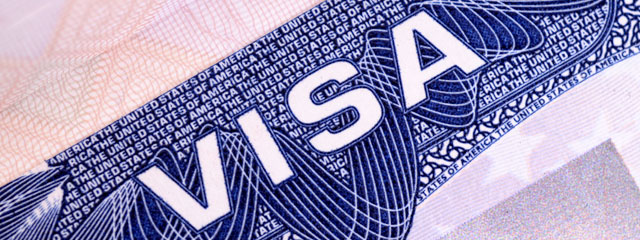B-1 Business Visitors
B-1 visas permit entry into the U.S. temporarily for business activities, such as:
- consulting or meeting with business associates;
- attending a scientific, educational, religious, or professional conference;
- negotiating contracts;
- attending a meeting of the board of directors of a U.S. corporation, if the visitor is a member of the board;
- engaging in non-productive training that benefits the visitors foreign employer;
- conducting types of missionary work;
- performing services as a domestic servant of certain nonimmigrant workers;
- performing services as a domestic servant of a U.S. citizen who permanently resides abroad or who is temporarily assigned to the U.S.;
- conducting independent research;
- participating in nonsalaried professional athletic events;
- investigating a potential E-2 investment or, for foreign corporate employees, coming to set up a U.S. subsidiary; or
- participating in voluntary religious activities.
A B-1 visitor is not allowed to perform productive work in the U.S. Receiving pay from U.S. sources is not the determining factor in whether a person’s activities constitute work. Productive activities performed on behalf of a U.S. entity while in the U.S. are likely to be viewed as work even if performed voluntarily or where the pay comes from foreign sources.
To prove eligibility for a B-1 visa, you must demonstrate that you: intend to remain for a specific, limited period; have funds to cover the purpose of the U.S. visit; have family, social, and economic ties abroad; and maintain a residence in a foreign country that will ensure your return abroad at the end of the visit. The B-1 visitor will generally remain on a foreign employer’s payroll and perform all duties for the benefit of the foreign employer, and is not allowed to receive compensation from a U.S. source, other than reimbursement for incidental expenses. Applications for a B-1 visa may be made directly at a U.S. embassy or consulate abroad.
B-1 Duration
B-1 visa holders are generally admitted for the period of time necessary to conduct the business. In theory, a B-1 entrant may be admitted up to a maximum of six months. However, in practice, immigration officers typically allow business visitors to remain in the U.S. for no more than 30-90 days. When unexpected events necessitate an extension, individuals may apply to extend the authorized period of stay up to six months. However, prolonged business visits may give rise to a presumption that the visitor is engaged in prohibited productive work.



